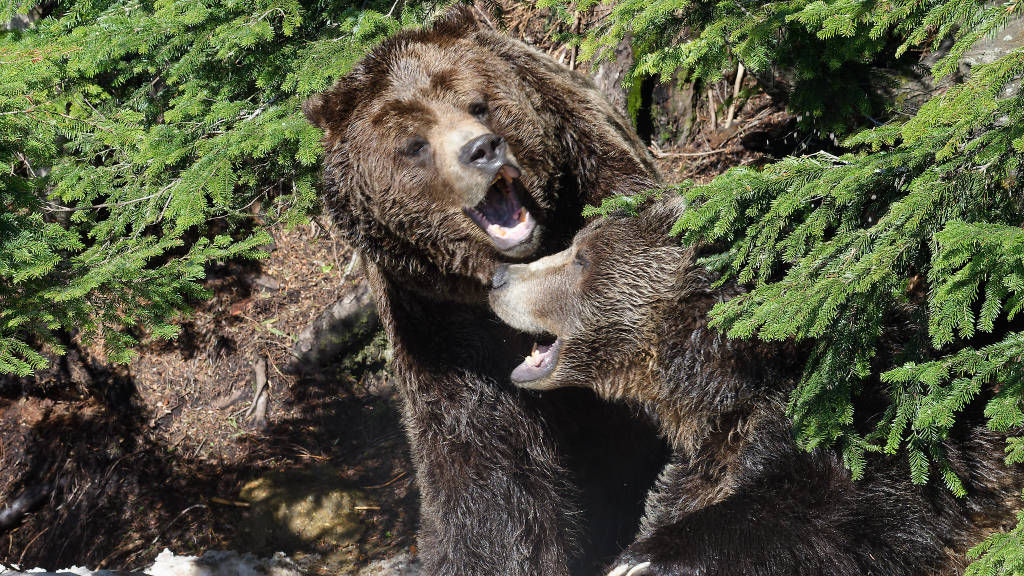On a recent trip to Canada I visited Grouse Mountain, Vancouver. On the mountain there are several Grizly Bears in a very natural environment, which had recently came out of hibernation. The bears were very active in their environment and it was a great venue to get many natural images of these magnificent creatures.
The images here have been captured with the Nikon D810 and the Nikkor 200-500mm f/5.6 telephoto lens.
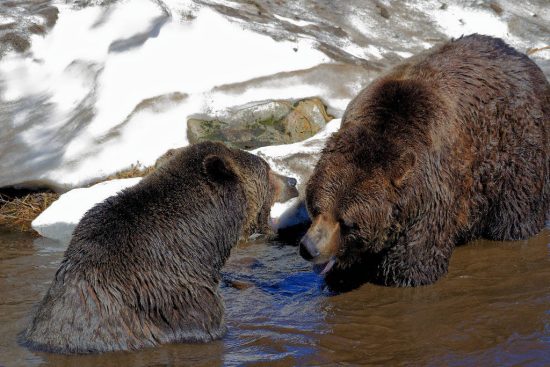
Grisly Bear, Grouse Mountain, VancouverGrouse Mountain is located at Vancouver and is accesable by Gondola and I believe it is also possible to walk there.
The mountain rises 1,250 metres (4,100 feet) above Vancouver and is just 15 minutes from the main city.
There are panoramic views as you travel up the mountain aboard the Skyride gondola and also from the top of the mountain. Visitors can see a very wide variety of outdoor activities and educational experiences. There is the lumbar show, bird demonstrations and of course the main attraction the Grizlies.
The grizly bears are very large and give the impression of being a very domineering species of animal. Grizzly bears can be found in woodlands, forests, alpine fields and prairies. In many habitats they prefer areas along rivers and streams.
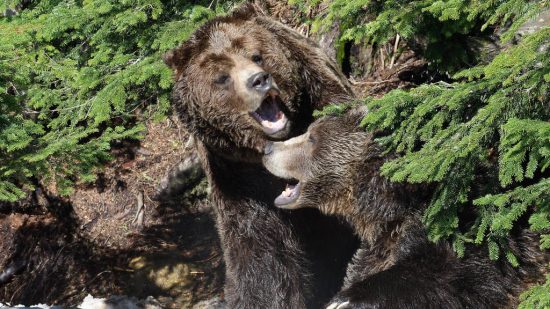
The grizlies are very good swimmers and fast runners, they can reach reach speeds as high as 50 km/h (35 mph). They are omnivores and will eat anything nutritious, they can be found gorging on nuts, berries, fruit, leaves, roots, fungi, insects and a variety of animals and fish including salmon and other fish, rodents, sheep, and elk. Their diet varies depending on what foods are available.
Standing as tall as 2.5 m (8 ft) and weighing up to 350 kg (800 lbs.), the grizzly bear is a subspecies of the brown bear that inhabits western Canada and the northwestern United States.
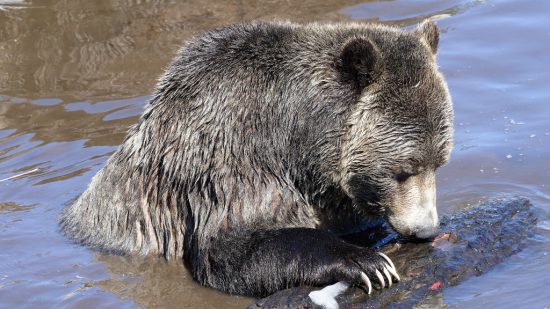
Experts on grizlies will advise the following:
If you encounter a grizzly, do not run.
Avoid direct eye contact.
Walk away slowly, if the bear is not approaching.
If the bear charges, stand your ground (you cannot outrun it).
Don’t scream or yell. Speak in a soft monotone voice and wave your arms to let the animal know you are human.
If you have pepper spray, prepare to use it.
If the grizzly charges to within 25 feet of where you’re standing, use the spray.
If the animal makes contact, curl up into a ball on your side, or lie flat on your stomach.
Try not to panic; remain as quiet as possible until the attack ends.
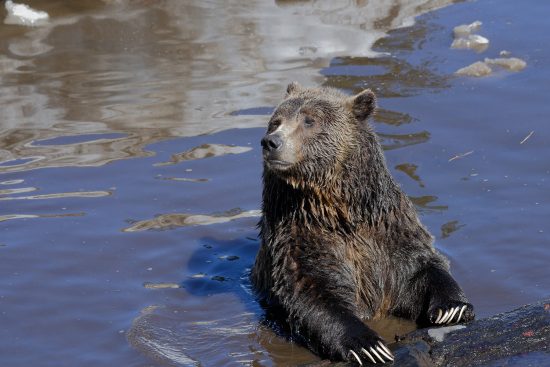
While in bear country, be aware that you may encounter a bear at any time.
The grizlies have an astute sense of smell and have been known to be able to smell from several km away.
Be sure the bear has left the area before getting up to seek help.
Most human injuries from grizzly bears are caused by the female bears acting aggressively to protect their young cubs.

